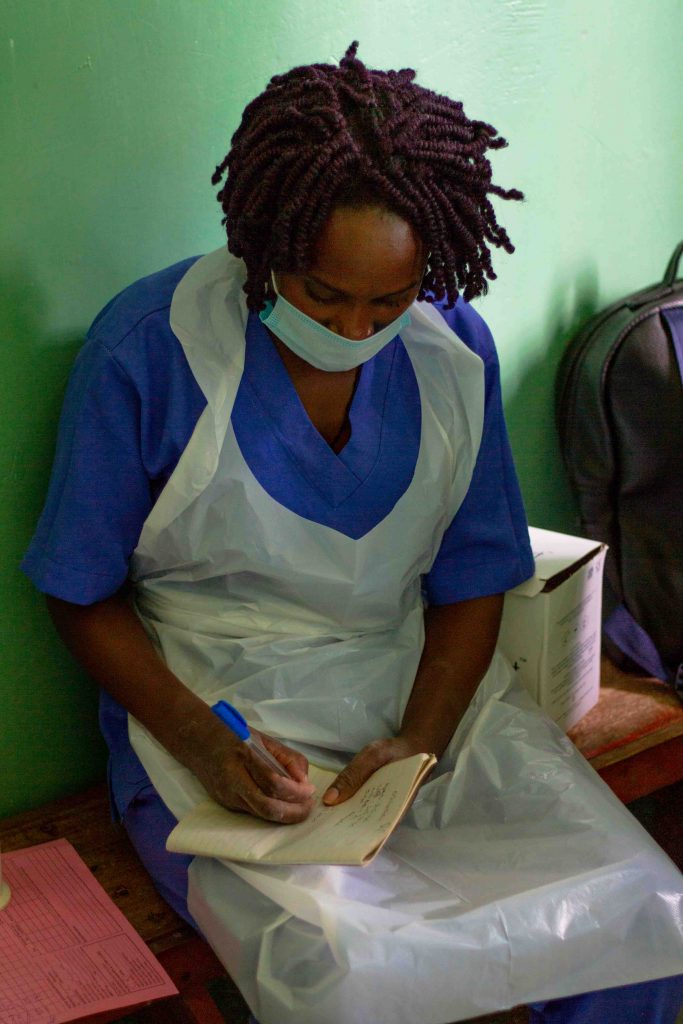Harriet’s Story
As a frontline health worker, she was expected to continue providing health care to the patients in the refugee settlement that visited the poorly equipped health facility to handle covid-19 patients. The health facilities in the refugee settlement lacked adequate information on the disease as well as supplies such as PPE and hygiene supplies to protect the health workers and patients from the disease. Therefore, having to work under these highly challenging conditions has increased the increased risk health workers in the refugee settlement experiencing mental health problems.
I remember the fear and panic among our health team on the first day we got a patient of COVID-19. Though we had to carry out business as usual, we could not shake off the feeling of contracting the novel virus. With time, we have seen more patients of COVID-19 at our health facility but this does not make it easier on us. In addition, the quarantine centre is near our health centre so we are afraid of getting in contact with people who would potentially be infected. Moreover, ours is a service of proximity hence we can’t afford to social distance. Not so long ago, we had a mother who tested positive for COVID-19 and was referred to Mbarara hospital. This puts us in a position of being scared of the people we are serving. In a day, our facility serves approximately sixty to seventy people in day and these people come from around ten villages. But then, some of the people who come in to use the services are not protected! They don’t have protective gear because they can’t afford it or don’t know the importance. This is made worse due to their refugee status that makes them more vulnerable. Most are still not aware of the protective and safety measures against COVID-19.
Having such an unsettled mind affects the entire person and having peer to peer support, continuous updated information on COVID-19 and supportive supervision will go a long way to help us cope with the virus. Getting enough protective gear such as masks, specs, gloves, aprons is very paramount for us to serve the community with reduced fear of acquiring the novel virus. Due to lack, we are at times we are forced to reuse items like disposable masks which is very unhealthy. Our health centre has put in place the protective gear such as hand washing facilities, temperature guns and alcohol sanitizer.
More than having the protective gear is our need for counselling and other psycho-socio therapies to protect our mental and emotional health. At the bare minimum, we need psycho-socio support on a bi-weekly basis so that we serve our communities better while taking care of our emotional needs.

